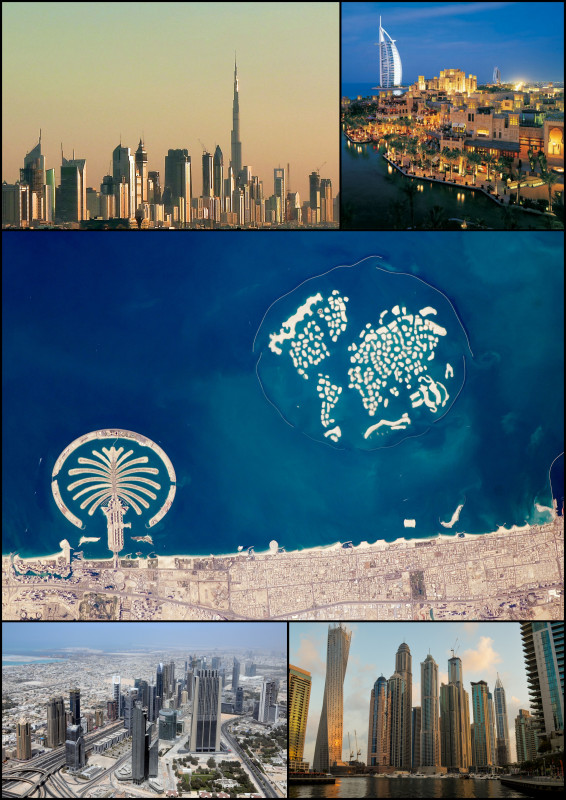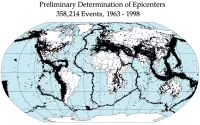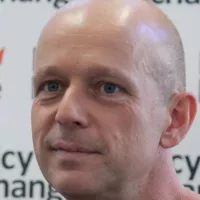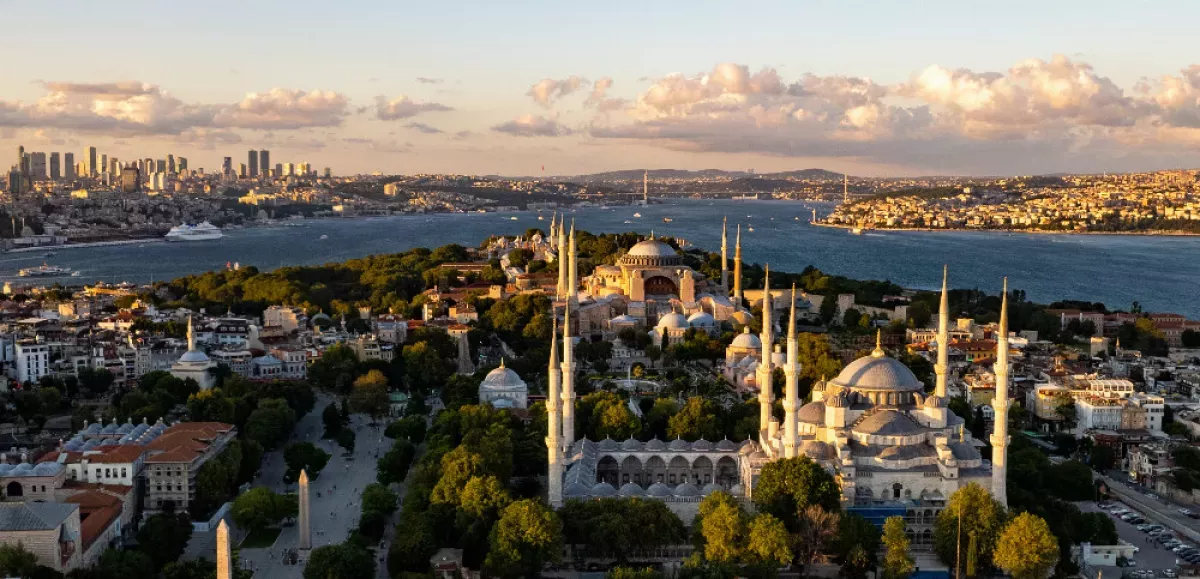Istanbul is Turkey's largest city and its economic, cultural, and historical center, home to over 15 million people. Straddling the Bosphorus Strait, it uniquely spans two continents (Europe and Asia). Its location between the Sea of Marmara and the Black Sea makes it a strategically important city. The city's large area of 5,461 square kilometers is coterminous with Istanbul Province and experiences a Mediterranean climate.
1903: Establishment of Beşiktaş J.K.
In 1903, Beşiktaş J.K. was established and is considered the oldest sports club in Turkey.
July 1908: Reopening of the Ottoman Parliament
On July 23, 1908, the Ottoman Parliament, which had been closed since February 14, 1878, was reopened, marking the beginning of the Second Constitutional Era.
1908: City Declared a Province
In 1908, Istanbul was declared a province with nine constituent districts, with laws enacted after the Ottoman constitution of 1876 aiming to expand this structure across the city.
1908: Haydarpaşa Terminal Opens
Istanbul's Haydarpaşa Terminal opened in 1908, serving as the western terminus of the Baghdad Railway and an extension of the Hejaz Railway.
1909: Deposition of Sultan Abdul Hamid II
In 1909, Sultan Abdul Hamid II was deposed following a counter-revolution attempt known as the 31 March incident.
1909: First Manual Telephone Exchange
In 1909, the first manual telephone exchange became operational in Istanbul.
1913: Peak of Armenian population
In 1913, Istanbul's Armenian population peaked at 164,000.
1913: Ottoman coup d'état
In 1913, the Ottoman coup d'état, brought the regime of the Three Pashas to power.
1914: Decline of Christian Population
Between 1914 and 1927, the city's Christian population declined from 450,000 to 240,000 due to Ottoman and Turkish policies of Turkification and ethnic cleansing during WWI.
1914: Silahtarağa Power Station Completion
In 1914, the Silahtarağa Power Station, a coal-fired power station, completed its first engine room and became Istanbul's sole source of electricity.
April 1915: Deportation of Armenian Intellectuals
On April 24, 1915, the deportation of Armenian intellectuals marked the start of the Armenian genocide during World War I.
November 13, 1918: Occupation of Constantinople Begins
On November 13, 1918, a French brigade entered Constantinople, beginning the Occupation of Constantinople by Allied forces.
1919: Greek Population
As a result of policies, the Greek population of Istanbul decreased from 110,000 in 1919 to 2,500 today.
April 1920: Dissolution of the Ottoman Parliament
On April 11, 1920, the Ottoman Parliament was dissolved by the Allies.
August 1920: Signing of the Treaty of Sèvres
On August 10, 1920, representatives of the Turkish government signed the Treaty of Sèvres.
1921: Transformation of Taksim Military Barracks
The Taksim Military Barracks was transformed into the Taksim Stadium in 1921.
November 1922: Abolition of the Sultanate
On November 1, 1922, the Grand National Assembly of Turkey in Ankara abolished the Sultanate. On November 17, 1922, the last Ottoman Sultan, Mehmed VI, left aboard the British warship HMS Malaya, going into exile.
1922: Topkapı Palace Becomes Public Property
In 1922, Topkapı Palace became public property following the abolition of monarchy.
July 1923: Signing of the Treaty of Lausanne
On July 24, 1923, the Treaty of Lausanne was signed.
October 1923: Establishment of the Turkish Republic
On 29 October 1923 the Grand National Assembly of Turkey declared the establishment of the Turkish Republic, with Ankara as its capital.
October 1923: End of the Occupation of Constantinople
On October 4, 1923, the occupation of Constantinople ended with the departure of the last forces of the Allies from the city. On 6 October 1923, Turkish forces entered the city.
1923: Development as a Turkish city
Despite its development as a Turkish city since 1923, it contains many, Greek, Jewish, Roman, Islam, Christian, Judaism, and Muslim buildings.
1923: Power Plant Renovations
Following the founding of the Turkish Republic, the Silahtarağa power plant underwent renovations in 1923 to accommodate the city's increasing electricity demand, increasing its capacity to 23 megawatts.
1923: Establishment of the Republic
In 1923, Istanbul was overlooked as the new capital of the Republic of Turkey.
1923: Population exchange exemption for Greeks
In 1923, Istanbul's Greek population was exempted from the population exchange with Greece.
1924: Topkapı Palace Becomes a Museum
In 1924, after extensive renovation, Topkapı Palace became one of Turkey's first national museums.
May 1926: Death of Mehmed VI
On May 16, 1926, the last Ottoman Sultan, Mehmed VI, died in Sanremo, Italy.
1927: Decline of Christian Population
Between 1914 and 1927, the city's Christian population declined from 450,000 to 240,000 due to Ottoman and Turkish policies of Turkification and ethnic cleansing during WWI.
1927: First radio transmission in Turkey
In 1927, Turkey's first radio transmission came from atop the Central Post Office in Eminönü.
1930: Establishment of Istanbul Municipality
In 1930, the system of local government continued with the establishment of Istanbul Municipality.
1930: Establishment of Istanbul Metropolitan Municipality
The Istanbul Metropolitan Municipality was established in 1930.
1935: Reopening of Hagia Sophia as a Museum
The Hagia Sophia was reopened as a museum in 1935 due to its historical significance.
1940: Demolition of Taksim Stadium
The Taksim Stadium was demolished in 1940 for building Gezi Park.
1942: Wealth Tax on Non-Muslims
In 1942, a wealth tax assessed mainly on non-Muslims led to the transfer or liquidation of many businesses owned by religious minorities.
1950: Jewish population in Istanbul
In 1950, the Jewish population in Istanbul was around 100,000.
1950: Rapid population growth begins
Starting in 1950, Istanbul experienced rapid population growth, which increased tenfold between 1950 and 2000 due to internal and international migration.
1952: Establishment of Istanbul Sailing Club
In 1952, the Istanbul Sailing Club was established.
1952: Silahtarağa Power Station Dominance
Until 1952, the Silahtarağa Power Station was the sole source of Istanbul's electricity.
1955: Anti-Greek pogrom prompts migration
In 1955, an anti-Greek pogrom prompted thousands of Greeks to leave Istanbul.
1955: Istanbul Pogrom
In 1955, the US-incited and state-sanctioned Istanbul pogrom led to the emigration of most of the remaining Greeks in Istanbul.
1956: Peak Capacity
By 1956, the Silahtarağa power plant reached its peak electricity generation capacity of 120 megawatts.
1961: Printing of Hürriyet Daily News
In 1961, Hürriyet's English-language edition, Hürriyet Daily News, has been printed.
1963: Release of 'From Russia with Love'
In 1963, the foreign film 'From Russia with Love' was filmed in Istanbul.
1964: Mass Expulsions of Greeks
Further mass expulsions of Greeks took place in 1964–1965.
1964: Release of 'Topkapi'
In 1964, the foreign film 'Topkapi' was filmed in Istanbul.
1964: Establishment of TRT
In 1964, the state-run Turkish Radio and Television Corporation (TRT) was founded.
1965: Mass Expulsions of Greeks
Further mass expulsions of Greeks took place in 1964–1965.
1970: Turkish Electrical Authority Founding
The state-run Turkish Electrical Authority (TEK) was founded in 1970.
1973: Establishment of the Istanbul Festival
In 1973, the Istanbul Festival was established, showcasing art from Turkey and around the world.
1973: Istanbul International Music Festival
In 1973, the Istanbul International Music Festival was first held.
1982: Amendment to the constitution
Before the 1982 amendment to the constitution private universities were not allowed in Turkey.
1983: Power Station Shutdown
In 1983, the Silahtarağa Power Station reached the end of its economic life and shut down.
1984: Turkish Electrical Authority Breakup
In 1984, the Turkish Electrical Authority (TEK) was split between the Turkish Electricity Generation Transmission Company (TEAŞ) and the Turkish Electricity Distribution Company (TEDAŞ).
1987: Opening of Galleria Ataköy
In 1987, Galleria Ataköy opened, marking the beginning of modern shopping malls in Turkey.
1987: Istanbul Biennial held biennially
Since 1987, the Istanbul Biennial is a contemporary art exhibition held biennially.
1990: End of TRT monopoly
In 1990, the TRT monopoly on radio and television broadcasts ended.
1992: Establishment of Koç University
In 1992, Koç University, Istanbul's first private university, was founded.
1994: Erdoğan Elected as Mayor of Istanbul
In 1994, Erdoğan's election as the mayor of Istanbul served as a launchpad for his subsequent political career.
1994: GSM Cellular Networks Arrive
In 1994, GSM cellular networks arrived in Turkey, with Istanbul among the first cities to receive the service.
1995: Borsa Istanbul moves headquarters to İstinye
In 1995, Borsa Istanbul moved its headquarters to İstinye, near Maslak, where numerous Turkish banks are located.
1995: Türk Telekom Split
Türk Telekom split from the Ministry of Post, Telegraph, and Telephone in 1995.
1999: Establishment of CNN Türk
In 1999, the American news channel CNN established the Turkish-language CNN Türk in Istanbul.
1999: Release of 'The World Is Not Enough'
In 1999, the foreign film 'The World Is Not Enough' was filmed in Istanbul.
August 2000: F1 Powerboat World Championship race
In August 2000, Istanbul hosted a race of the F1 Powerboat World Championship on the Bosporus strait.
2000: Significant population increase by 2000
By 2000, Istanbul's population had increased tenfold since 1950, fueled by internal and international migration.
2000: Number of Hospitals in Istanbul
In 2000, Istanbul had 137 hospitals, of which 100 were private.
2001: EuroBasket finals
In 2001, the Abdi İpekçi Arena hosted the finals of EuroBasket.
2001: Sabiha Gökçen Airport Opens
Sabiha Gökçen International Airport opened in 2001, located 45 kilometers southeast of the city center.
2002: Completion of Atatürk Olympic Stadium
In 2002, the Atatürk Olympic Stadium, Turkey's largest multi-purpose stadium, was completed.
2002: Release of 'Uzak'
In 2002, the Turkish film 'Uzak', filmed in Istanbul, achieved substantial international success.
2003: First Istanbul Pride
In 2003, the annual Istanbul Pride became the first gay pride event in a Muslim-majority country.
2003: Rock'n Coke Festival
In 2003, the first Rock'n Coke festival was organized in Istanbul, sponsored by Coca-Cola.
2004: Restructuring of Istanbul Metropolitan Municipality
The Istanbul Metropolitan Municipality was restructured with the Metropolitan Municipalities Law in 2004.
2005: Increase in Private Hospital Usage
Between 2005 and 2009, the percentage of outpatients using private hospitals increased from 6 percent to 23 percent.
2005: Formula One Turkish Grand Prix
Between the 2005–2011 seasons, Istanbul Park racing circuit hosted the Formula One Turkish Grand Prix.
2005: Türk Telekom Privatization
In 2005, Türk Telekom, which split from the Ministry of Post, Telegraph, and Telephone in 1995, was privatized.
2005: 2005 UEFA Champions League Final
In 2005, the Atatürk Olympic Stadium hosted the UEFA Champions League Final.
2005: Release of 'My Father and My Son'
In 2005, the Turkish film 'My Father and My Son', filmed in Istanbul, achieved substantial international success.
2005: Annual Tulip Festival
Since 2005, an annual tulip festival has been held in Emirgan Park.
2006: Taksim-Kabataş Funicular
A modern funicular between Taksim Square and Kabataş began running in 2006.
2007: Upsurge in medical tourism
Between 2007 and 2008, medical tourism to Turkey had a 40 percent increase.
2007: Turkish Motorcycle Grand Prix
In 2007, Istanbul hosted the Turkish Motorcycle Grand Prix for the last time.
2007: Foreign population in Istanbul
In 2007, Istanbul's foreign population with a residence permit was 43,000.
2008: Upsurge in medical tourism
Between 2007 and 2008, medical tourism to Turkey had a 40 percent increase.
2008: Release of 'Mission Istaanbul'
In 2008, the foreign film 'Mission Istaanbul' was filmed in Istanbul.
June 2009: Last race of the Powerboat P1 World Championship
In June 2009, the last race of the Powerboat P1 World Championship on the Bosporus took place.
2009: Increase in Private Hospital Usage
Between 2005 and 2009, the percentage of outpatients using private hospitals increased from 6 percent to 23 percent.
2009: New International Terminal Opens
In 2009, a new international terminal opened at Sabiha Gökçen International Airport.
2009: Istanbulkart Introduction
The contactless Istanbulkart was introduced in 2009 for integrated fares across Istanbul's public transportation modes.
2010: FIBA World Championship Final
In 2010, the Sinan Erdem Dome hosted the final of the FIBA World Championship.
2011: Atatürk passenger growth
Between 2011 and 2012, Atatürk had a 20.6 percent rise in passenger traffic.
2011: Opening of Türk Telekom Arena
In 2011, Türk Telekom Arena opened to replace Ali Sami Yen Stadium as Galatasaray's home turf.
2011: Euroleague Final Four
In 2011, the Sinan Erdem Dome hosted the EuroLeague Final Four.
2011: Bosphorus Bridge Traffic
In 2011, the first and second bridges on the Bosphorus carried 400,000 vehicles each day.
2011: Erdoğan presents Canal Istanbul project
In 2011, the then Prime Minister Erdoğan presented Canal Istanbul, a project to open a new strait between the Black and Marmara seas, as a solution to the busy Bosporus strait.
2012: Passenger Volume at Sabiha Gökçen
In 2012, Sabiha Gökçen International Airport handled 14.7 million passengers.
2012: IAAF World Indoor Championships
In 2012, the Sinan Erdem Dome hosted the IAAF World Indoor Championships.
2012: Haydarpaşa Terminal Closure
In 2012, the construction of Marmaray and the Ankara-Istanbul high-speed railway forced the Haydarpaşa Terminal to close.
2012: Demolition and Replacement of Vulnerable Buildings
Since 2012, over 500,000 vulnerable buildings in Istanbul have been demolished and replaced due to the threat of major earthquakes.
2013: Anti-AKP government protests begin
In 2013, large-scale anti-AKP government protests began in Istanbul and spread throughout the nation, indicating a shift away from the government's right-wing ideology.
2013: Gezi Park protests
In 2013, the Gezi Park protests took place at Taksim Square and İstiklal Avenue.
2013: Marmaray Tunnel Inauguration
In 2013, the Marmaray Tunnel was inaugurated as the first rail connection between Thrace and Anatolia.
2014: First publication of Daily Sabah
In 2014, the English-language Daily Sabah, was first published by Sabah.
2014: Mayoral Election shows trend away from government
In the 2014 mayoral election, the center-left opposition candidate won an impressive 40% of the vote, signaling a change in political sentiment away from the ruling government.
2015: Atatürk Airport Passenger Volume
In 2015, Istanbul Atatürk Airport handled 61.3 million passengers.
August 2016: Third Bosphorus Bridge Opens
On August 26, 2016, the Yavuz Sultan Selim (Third Bosphorus) Bridge entered service.
December 2016: Eurasia Tunnel Opens
On December 20, 2016, the dual-deck Eurasia Tunnel under the Bosphorus strait opened, providing road crossings for motor vehicles between the Asian and European sides of Turkey.
2016: Opening of Beşiktaş Stadium
In 2016, Beşiktaş Stadium opened to replace BJK İnönü Stadium.
2016: EuroLeague Final Four
In 2016, the Sinan Erdem Dome hosted the EuroLeague Final Four.
2017: Istanbul votes 'No' in constitutional referendum
In the 2017 constitutional referendum, Istanbul voted 'No' by 51.4% to 48.6%, marking the first government defeat in the city. The AKP government supported a 'Yes' vote, which won nationally due to high support in rural areas.
2018: Foreign tourists visit to Istanbul
In 2018, 13.4 million foreign tourists visited Istanbul, making it the world's fifth most-visited city in that year.
2018: Istanbul's economic ranking and GDP
In 2018, Istanbul had the eleventh-largest economy among the world's urban areas and contributed significantly to Turkey's GDP and tax revenues. The city's gross domestic product adjusted by PPP stood at US$537.507 billion.
2018: Shipping in Istanbul's economy
In 2018, shipping was a significant part of Istanbul's economy, with 73.9 percent of exports and 92.7 percent of imports executed by sea.
2018: Istanbul Airport Opens
Istanbul Airport opened in 2018 in the Arnavutköy district to the northwest of the city center.
March 2019: Marmaray Full Line Opening
On March 12, 2019, the full Marmaray intercontinental commuter rail line, officially named B1, opened, running from Halkalı to Gebze.
April 2019: Atatürk Airport Transfers
On April 6, 2019, all scheduled commercial passenger flights were transferred from Atatürk Airport to Istanbul Airport, following the closure of Istanbul Atatürk Airport for scheduled passenger flights.
2019: Survey on Istanbul's population
A 2019 survey found that only 36% of Istanbul's population was born in the province.
2019: KONDA survey on religiosity in Istanbul
A 2019 survey study by KONDA examined the religiosity of the voting-age adults in Istanbul, showing that 57% had a religion and were trying to practice its requirements.
2019: KONDA study on Kurdish population
According to a 2019 KONDA study, Kurds constituted around 17% of Istanbul's adult total population who were Turkish citizens.
2019: Atatürk Airport Closure
After its closure to commercial flights in 2019, Istanbul Atatürk Airport was briefly used by cargo aircraft and the official state aircraft owned by the Turkish government.
2019: Universities in Istanbul
As of 2019, Istanbul has 61 colleges and universities, with more than 1.8 million students enrolled.
2019: Air Pollution Levels
As of 2019, Istanbul's mean air quality remained at a level that affected the heart and lungs of healthy bystanders, with almost 200 days of pollution measured at various locations.
2019: Student attendance in Istanbul schools
As of 2019, excluding universities, more than 3.1 million students attended 7,437 schools in Istanbul.
2019: Population estimate of Istanbul Metropolitan Municipality
At the end of 2019, the Turkish Statistical Institute estimated that the population of Istanbul Metropolitan Municipality was 15,519,267, which is 19 percent of the country's population.
2019: Dramatic increase in foreign population by 2019
By 2019, Istanbul's foreign population with a residence permit had increased dramatically to 856,377, a significant rise from 43,000 in 2007.
2019: Greek population rises to nearly 3,000
Following Greek migration to the city for work in the 2010s, the Greek population rose to nearly 3,000 in 2019, a great diminish compared to 1919.
2019: Trend towards CHP persists after election
Following the 2019 election, a trend towards the CHP has persisted across the city.
2019: Ambarlı's annual capacity
In 2019, Ambarlı had an annual capacity of 3,104,882 TEUs, making it the third-largest cargo terminal in the Mediterranean basin.
2019: Trade Statistics for Istanbul companies
In 2019, companies based in Istanbul produced exports worth $83.66 billion and received imports totaling $128.34 billion, accounting for 47 percent and 61 percent of the national totals, respectively.
2019: Erdoğan's claim about Istanbul's importance in Turkish politics
In 2019, leading up to the local elections, Erdoğan stated that 'if we fail in Istanbul, we will fail in Turkey', highlighting the city's political importance. The election was also significant because Erdoğan's party, AKP, lost control of the $4.8 billion municipal budget.
2019: Local elections and İmamoğlu's victory
In the 2019 local elections, the AKP candidate for Mayor, Binali Yıldırım, was defeated by Ekrem İmamoğlu. İmamoğlu's initial narrow victory was controversially annulled, but he won the re-run with a wider margin.
2019: Bucharest Rail Service Resumes
Regular rail service between Bucharest and Istanbul's Sirkeci Terminal, which had been interrupted for Marmaray construction, started running again in 2019.
2019: Opening of Istanbul Airport
The Turkish government has plans for an expansion of the city in conjunction with the new Istanbul Airport, opened in 2019.
July 2020: Re-conversion of Hagia Sophia into a Mosque
In July 2020, the Hagia Sophia was re-converted into a mosque.
2020: TÜİK data on Istanbul's population registration
According to 2020 TÜİK data, around 2.1 million people in a population of over 15.4 million have been registered in Istanbul.
2020: Istanbul Park racing circuit hosted the Formula One Turkish Grand Prix.
In 2020, Istanbul Park racing circuit hosted the Formula One Turkish Grand Prix.
2020: Unsuccessful bid for Summer Olympics
In 2020, Istanbul's bid for the Summer Olympics ended unsuccessfully.
2020: Canal Istanbul still on Turkey's agenda
In 2020, the Canal Istanbul project was still on Turkey's agenda, although no clear date had been set for its implementation.
2020: Relocation of the 2020 UEFA Champions League Final
In 2020, the UEFA Champions League Final, originally slated for Istanbul, was relocated to Lisbon due to the COVID-19 pandemic.
2020: Atatürk Airport Demolition
The demolition of Istanbul Atatürk Airport's runway began in 2020.
June 2021: Marine Mucilage Wave
In June 2021, a marine mucilage wave allegedly caused by water pollution spread to the Sea of Marmara.
June 2021: Announcement of the 2021 F1 Turkish Grand Prix
On June 25, 2021, it was announced that the 2021 F1 Turkish Grand Prix will take place on October 3, 2021.
2021: Decline of Jewish population by 2021
By 2021, the Jewish population in Istanbul had dropped to 15,000, largely due to emigration to Israel.
2021: Relocation of the 2021 UEFA Champions League Final
In 2021, the UEFA Champions League Final, originally slated for Istanbul, was relocated to Porto due to the COVID-19 pandemic.
2021: Carbon Dioxide Emissions
Road transport emitted an estimated 7 million tons of carbon dioxide in 2021.
2022: Sea-Effect Snowstorms
In 2022, sea-effect snowstorms with more than 30 centimetres (1 ft) of snowfall occurred in Istanbul, disrupting city infrastructure.
August 2023: Refugees from the Syrian Civil War in Istanbul
As of August 2023, there were more than 530,000 refugees of the Syrian civil war in Istanbul, the highest number in any Turkish city.
2023: State of Infrastructure
According to ministry statements and geologist comments made in 2023, Istanbul's infrastructure was in reasonably good shape, however, buildings were not.
2023: CHP candidate receives 48.56% of the vote
In the 2023 presidential election, the CHP candidate, Kemal Kılıçdaroğlu, received 48.56% of the city's vote, while the incumbent president and AKP candidate, Recep Tayyip Erdoğan, received 46.68%.
2023: Istanbul Financial Center in Ataşehir
Since 2023, the Ataşehir district has been home to the Istanbul Financial Center (IFC), including the new headquarters of the Turkish Central Bank.
2024: Buildings of Istanbul
As of 2024, most buildings in Istanbul were built to a low seismic standard in the 20th century, and residents think the city is not properly prepared for the earthquake.
2024: Road Lengths
As of 2024, the total length of Istanbul Province's network of toll roads is 543 km and the state highways network is 353 km.
2024: Second Most Visited City
In 2024, Euromonitor International ranked Istanbul as the second most visited city in the world.
2024: Ekrem İmamoğlu re-elected with a 12-point margin
In the 2024 local elections, Ekrem İmamoğlu was re-elected as mayor by a 12-point margin. The CHP also won the mayoralties in 26 of Istanbul's 39 districts.
April 2025: Earthquake Shakes Istanbul
On April 23, 2025, an earthquake with a preliminary magnitude of 6.2 shook Istanbul and other areas, causing injuries and panic.
2025: Istanbul Airport Completion
Once all phases are completed in 2025, the Istanbul Airport will have six sets of runways (eight in total), 16 taxiways, and will be able to accommodate 200 million passengers a year.
2027: Hosting the European Games
The city will host the 2027 edition of the European Games.
Mentioned in this timeline

Basketball is a team sport played on a rectangular court...

Coca-Cola is a globally recognized cola soft drink produced by...
CNN Cable News Network is an American multinational news media...

Dubai is the most populous city in the United Arab...

An earthquake is the shaking of the Earth's surface caused...

News encompasses information about current events disseminated through various media...
Trending

53 minutes ago Kevin Durant Scores 30 Points Despite Loss to Knicks and Rockets Game.

53 minutes ago Javonte Williams secures a three-year deal with the Cowboys: Contract details revealed.

9 months ago Jerry West's Past: Bridgeport Visit, Lakers' Dynasty Impact, and Health Struggles Highlighted.

54 minutes ago Naz Reid Out; Joan Beringer Starts for Timberwolves Against 76ers: Fantasy Basketball Impact

54 minutes ago Brett Favre Criticizes NFL's Shift Away From 'True' Fans Amidst Super Bowl Controversy.

54 minutes ago Swalwell and Steyer Surge: California Governor Race Faces Democratic Candidate Challenges, Potential Republican Victory
Popular

Jesse Jackson is an American civil rights activist politician and...

Barack Obama the th U S President - was the...

Bernie Sanders is a prominent American politician currently serving as...

Michael Joseph Jackson the King of Pop was a highly...
The Winter Olympic Games a major international multi-sport event held...
WWE Raw a professional wrestling television program by WWE airs...
